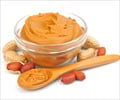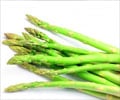A nano-sized "Trojan horse" particle that protects antioxidants from being destroyed in the gut, and ensures a better chance of them being absorbed in the digestive tract has been developed by Monash University researchers.
Dr Ken Ng and Dr Ian Larson from the University's Faculty of Pharmacy and Pharmaceutical Sciences highlight the fact that antioxidant are known to neutralise the harmful effect of free radicals and other reactive chemical species that are constantly generated by the body, and are thought to promote better health.They say that when antioxidants are given orally to people at high risk of developing conditions like atherosclerosis, diabetes or Alzheimer's disease, they are easily destroyed by acids and enzymes in their bodies, with only a small percentage of what is consumed actually being absorbed.
According to the researchers, the solution lies in designing a tiny sponge-like chitosan biopolymeric nanoparticle as a protective vehicle for antioxidants.
Chitosan is a natural substance found in crab shells, they point out.
"Antioxidants sit within this tiny trojan horse, protecting it from attack from digestive juices in the stomach. Once in the small intestine the nanoparticle gets sticky and bonds to the intestinal wall. It then leaks its contents directly into the intestinal cells, which allows them to be absorbed directly into the blood stream," Dr Larson said.
"We hope that by mastering this technique, drugs and supplements also vulnerable to the digestive process can be better absorbed by the human body," the researcher added.
Advertisement
Although the research was in its early stages, Dr. Ng said that the longer term aim of the project would be to include similarly treated nanoparticles into food items, similar to adding Omega-3 to bread or milk.
Advertisement
Source-ANI
RAS/L















